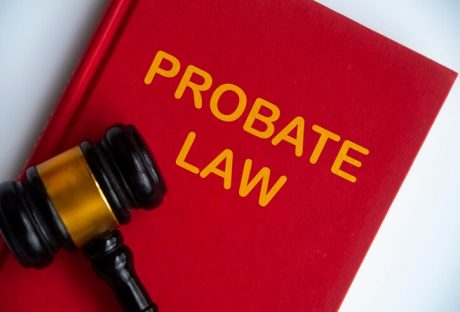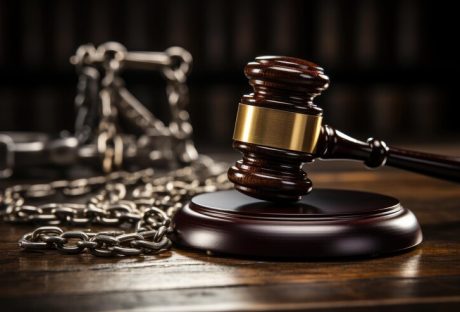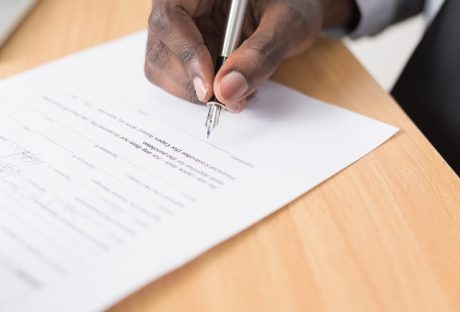As a crypto holder, cryptocurrency regulations can seem overwhelming and confusing. If you aim to proficiently manage digital currencies like Bitcoin and abide by the law, it’s vital to grasp the legal nuances involved.
A crypto lawyer can provide invaluable guidance, helping you navigate the complex web of rules surrounding cryptocurrencies. This blog post sheds light on how a crypto attorney can assist in your evolution toward an enlightened digital currency investor. Keep reading for more insights.
Cryptocurrency Regulation
You all know that Cryptocurrency works with the help of Blockchain technology. It denotes the transaction gets recorded in a distributed ledger. Furthermore, no centralized entities control it. That’s probably why Cryptocurrency is not under a centralized authority’s radar.
The United States government authorities noted these developments and took steps to control and regulate Cryptocurrency dealings. Yes, now the transactions of Cryptocurrency are covered by the Bank Secretary Act and the anti-money laundering laws. The Anti-money Laundering Act of 2020 codifies the FinCEN guidance.
Hence the entire thing comes under a structure and formation. All you need is to have good know-how on the regulations. A bonafide Blockchain Lawyer can help you out understand the regulations better.
Who Are The Cryptocurrency Lawyers?
Cryptocurrency lawyers are professionals who specialize in the legal aspects of Cryptocurrencies. It includes counseling the clients on the different segments like
- Consumer Protection.
- Money Transmission Regulations.
- The Tax Treatment.
Apart from them, these professionals also provide legal advice on illegal activities such as money laundering and fraud.
How Does A Cryptocurrency Lawyer Help You Attain Your Aim?
Cryptocurrency is quite a new subject, and you need the specifics to understand the laws and regulations. Therefore, when trading on Cryptocurrency, you must act with complete awareness. Awareness of the laws on digital currency can do you a lot of good.
Get in touch with a Crypto lawyer. They can help you out with the regulations. The following section discusses the different ways through which you can get the help of an expert on Crypto regulations.
Dealing With A Scam Or Fraud
If you are dealing with a scam or fraud in the cryptocurrency market, it’s crucial to recognize the signs that you may need a crypto lawyer. The anonymous nature of this market often creates a breeding ground for fraudulent activities, making it essential to have legal guidance.
A skilled crypto lawyer can assist you in navigating the legal channels required to pursue justice and provide crucial support. They will help you identify the culprits behind the scam. Moreover, they can help you recover your assets and work towards holding the fraudsters accountable for their actions.
Foreseeing A Dispute
The second sign that you may need a crypto lawyer is if you foresee a dispute on the horizon. In cryptocurrency, disagreements can arise over issues such as complex transactions, intricate contracts, and intricate ownership rights.
Having a skilled and experienced crypto lawyer by your side can provide you with valuable advice and guidance, helping to resolve disputes efficiently and effectively. Moreover, their expertise can prevent these disputes from escalating into costly legal battles, safeguarding your interests and investments.
Uncertainty About The Legality Of A Transaction
If you’re grappling with the legality of a transaction in the intricate realm of cryptocurrency, it’s a strong hint that you could greatly benefit from the counsel of a crypto lawyer. Cryptocurrency regulations’ dynamic nature and complexities can make staying updated with current legal stipulations a tough task. By enlisting the help of a proficient crypto lawyer, you can obtain essential insights and a clear understanding of the legalities tied to your transactions.
Facing A Tax Issue
Cryptocurrency taxation is a rapidly evolving and complex field that requires careful consideration. If you navigate a tax issue concerning your cryptocurrency investments or transactions, seeking guidance from a knowledgeable crypto lawyer can be invaluable.
They can clarify the tax implications of your crypto activities and assist in tax planning. Moreover, they effectively represent you in any interactions with tax authorities. With their expertise in the ever-changing landscape of cryptocurrency tax laws, a crypto lawyer can help you navigate potential pitfalls and mitigate any potential penalties that may arise.
Planning To Launch A Cryptocurrency Project Or ICO
Finally, having a competent and well-informed crypto lawyer cannot be overstated if you’re gearing up to kickstart a cryptocurrency initiative or an Initial Coin Offering (ICO). The legal environment enveloping ICOs and cryptocurrency ventures is exceptionally complex, with significant variations across different jurisdictions.
A crypto lawyer’s expertise becomes a beacon of guidance in this convoluted scenario. They can steer you through the labyrinth of regulations, ensuring you grasp the subtleties and complexities unique to your project. Their role isn’t confined to just imparting understanding; they also serve as your safeguard against potential legal pitfalls.
By keeping abreast of the latest legal developments and requirements, a crypto lawyer ensures your enterprise stays on the right side of the law. This compliance involves adhering to existing laws and anticipating and adjusting to any upcoming regulatory changes. In doing so, they significantly mitigate the risk of legal issues that could derail your project.
Moreover, a crypto lawyer will protect your interests in case of unforeseen legal implications. They can provide preemptive solutions and strategies to shield you from legal consequences. From drafting robust legal contracts to negotiating on your behalf and representing you in court if necessary, a crypto lawyer can provide comprehensive legal support for your cryptocurrency venture.
Crypto Lawyer: Your Best Defense Against Cryptocurrency Scams And Frauds
In conclusion, a crypto lawyer is not just a luxury but a necessity in the rapidly evolving world of cryptocurrency. Whether you’re dealing with a scam, facing a dispute, unsure about the legality of a transaction, dealing with tax issues, or planning to launch a cryptocurrency project, a crypto lawyer can provide the legal expertise you need. Remember, it’s always better to be safe than sorry, especially when navigating cryptocurrency regulation’s complex and often murky waters. Thank you for reading; we hope this information was helpful.
Read Also:






















